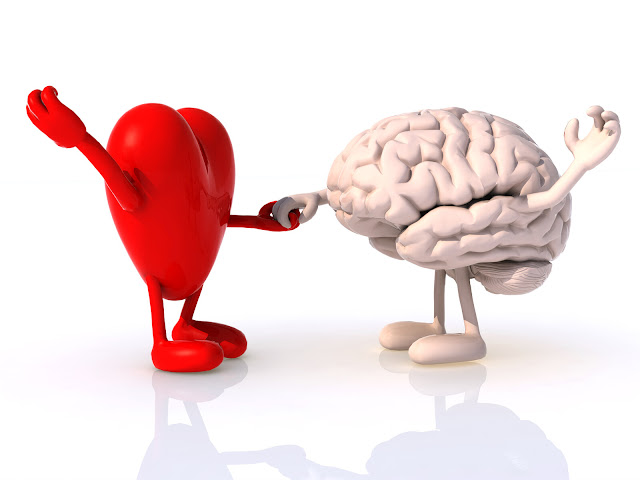What is Good for the Heart is Good for the Brain: A Pilates Perspective
What is Good for the Heart is Good for the Brain: A Pilates Perspective
With
wellness and brain health gaining prominence, individuals are increasingly
focused on optimising cognitive function and preventing neurological disorders.
As the understanding of brain health evolves, it becomes clear that it is a
critical aspect of overall well-being, intertwined with mental health and
physical wellness.
The
brain is a complex organ that impacts every aspect of life, from mood and
memory to more serious neurological conditions. However, the definition of
brain health remains broad and lacks universal acceptance. While some may
confuse brain health with mental health, they are distinct but related
concepts, as recognised by the World Health Organisation.
The
growing interest in brain care is evident, with the global neuroscience market
projected to exceed £ 565 billion by 2026. Brain health disorders account for a
staggering £2.35 trillion of lost productivity annually. Research on brain
health has surged, with the number of studies referencing the topic increasing
from less than ten per year between 1989 and 2004 to nearly 2,000 in 2021
alone.
Despite
this growing interest, there is still a need for more research into the causes
and treatments of brain health issues. Furthermore, there is a shortage of
medical professionals specialising in this field. Nonetheless, the urgency and
business potential have prompted new approaches to maximise brain health.
One
promising approach involves taking a preventative stance towards brain health
and age-related brain diseases. Unhealthy lifestyle behaviours significantly
increase the risk of neurological conditions, such as stroke, epilepsy,
Alzheimer's, and Parkinson's. More than 40% of dementia cases and 70% of stroke
cases are attributable to modifiable risk factors, such as smoking, obesity,
physical inactivity, and poor diet.
Neuroscientist
and Harvard professor Rudolph Tanzi recommends the SHIELD acronym for guarding
against and reversing cognitive decline. It stands for Sleep, Handling stress,
Interacting with others, Exercising, Learning new things, and Diet. Sleep, in
particular, is crucial for reducing inflammation and "cleaning" the
brain. Similarly, exercise has been found to be essential for brain health,
helping to stave off neurodegenerative disorders.
The link between diet and cognitive performance is also gaining recognition, especially as knowledge of the gut-brain axis expands. Consuming ultra-processed foods is associated with an increased risk of cognitive decline, while healthful diets like the MIND diet can reduce the risk of dementia and improve brain function.
As brain health gains mainstream attention, it is crucial to consider population-wide interventions that address socioeconomic factors and access to care for meaningful change. Simultaneously, individuals seeking to optimise brain health can adopt healthy habits, keeping in mind that what is good for the heart is good for the brain.
Pilates and Brain Health
One
promising avenue to enhance brain health is through Pilates. This exercise method,
focusing on core strength, flexibility, and mindfulness, has numerous benefits
for both the heart and the brain. Studies have shown that regular Pilates
practice improves cognitive function, memory, and overall brain health. The
mind-body connection fostered by Pilates can help reduce stress, promote better
sleep, and positively impact mood, all of which contribute to improved brain
health.
To
embrace a Pilates-centric approach to brain health, individuals can explore
specialised Pilates studios that cater to brain health. These studios may offer
tailored Pilates classes, incorporating exercises designed to stimulate
cognitive function and enhance brain health. The mindful nature of Pilates can
also be combined with meditation practices to create a holistic brain-boosting
experience.
In
conclusion, the growing interest in brain health highlights its crucial role in
overall well-being. As science continues to explore and understand the
complexities of brain health, there are actionable steps individuals can take
to enhance cognitive function and protect their brains from age-related
decline. Embracing a Pilates exercise routine, along with a balanced diet and
other healthy habits, contributes to the maxim "what is good for the heart
is good for the brain." So, let's start nurturing our minds and bodies
today for a healthier and more vibrant future.
Author: Chris Onslow - Pilates Consultant
Chris Onslow, has run Pilates focussed businesses since 1998. He and his team specialise in supporting Pilates entrepreneurs and business owners. With a rich history of owning and running successful Pilates studios in the UK, and supporting others in Europe and the Middle East, Chris has broad expertise in maximising profitability and optimising operational efficiency. His agency provides top-tier advice on selecting new, pre-owned, and hireable Pilates equipment from renowned brands such as Align-Pilates, Balanced Body or Stott-Pilates/Merrithew. As the founder of Mbodies Training Academy, Chris continues to revolutionise Pilates education, offering premier online and hybrid CPD and qualification courses for Pilates apparatus instruction and special population CPD. Discover more about how Chris can support your Pilates Business or home exercise choices at www.pilates-consultant.co.uk






Comments
Post a Comment